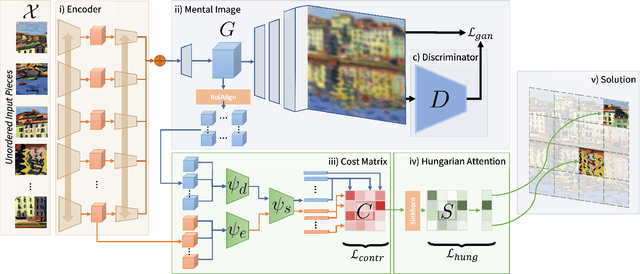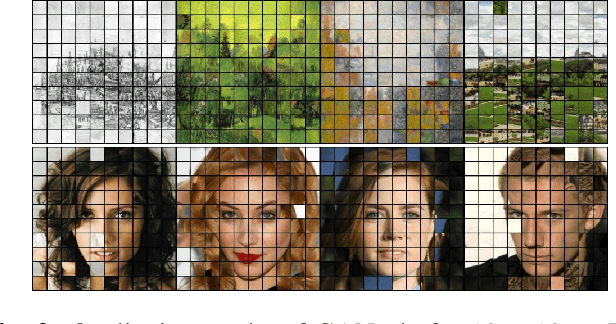GANzzle: Reframing jigsaw puzzle solving as a retrieval task using a generative mental image
Paper and Code
Jul 12, 2022



Puzzle solving is a combinatorial challenge due to the difficulty of matching adjacent pieces. Instead, we infer a mental image from all pieces, which a given piece can then be matched against avoiding the combinatorial explosion. Exploiting advancements in Generative Adversarial methods, we learn how to reconstruct the image given a set of unordered pieces, allowing the model to learn a joint embedding space to match an encoding of each piece to the cropped layer of the generator. Therefore we frame the problem as a R@1 retrieval task, and then solve the linear assignment using differentiable Hungarian attention, making the process end-to-end. In doing so our model is puzzle size agnostic, in contrast to prior deep learning methods which are single size. We evaluate on two new large-scale datasets, where our model is on par with deep learning methods, while generalizing to multiple puzzle sizes.
 Add to Chrome
Add to Chrome Add to Firefox
Add to Firefox Add to Edge
Add to Edge